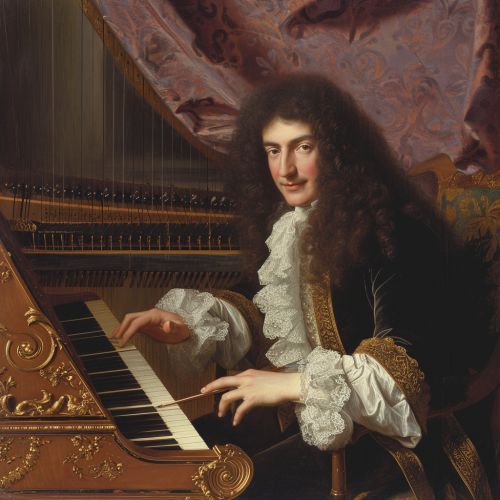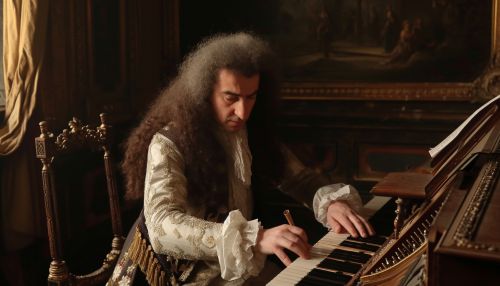Jean-Baptiste Lully
Early Life
Jean-Baptiste Lully was born on November 28, 1632, in Florence, Italy. His original name was Giovanni Battista Lulli. He was the son of a miller and a laundress, and he had no formal education. Despite his humble beginnings, Lully would go on to become one of the most influential composers in the history of baroque music.
Move to France
In 1646, Lully was taken to France by Roger de Lorraine, the Chevalier de Guise. He was appointed as a scullion in the household of Mademoiselle de Montpensier, a cousin of Louis XIV. Lully was soon noticed for his musical talents and was given violin lessons. He quickly mastered the instrument and became part of the Mademoiselle's band of musicians.
Court Musician
In 1652, Lully was appointed as a court musician for Louis XIV. He composed ballets for the king to dance in and was soon promoted to the position of royal composer for instrumental music. His compositions during this period are characterized by their intricate melodies and complex harmonies, which were a departure from the simpler, more straightforward music of the time.


Collaboration with Molière
In 1661, Lully began a fruitful collaboration with the playwright Molière. Together, they created a new genre of musical theatre known as the comédie-ballet. Their most famous works include Le Bourgeois gentilhomme and Psyche. These works combined elements of comedy, ballet, and opera, and they were a significant influence on the development of French opera.
Superintendent of Royal Music
In 1672, Lully was appointed as the Superintendent of Royal Music and the director of the Académie Royale de Musique. This allowed him to monopolize the production of opera in France. He used this position to promote his own works and to exclude those of his rivals.
Operas
Lully's operas are considered the pinnacle of French Baroque music. They are characterized by their dramatic intensity, their rich orchestration, and their innovative use of the French language. His most famous operas include Atys, Armide, and Phaëton. These works established the tradition of French opera and influenced generations of composers.
Death and Legacy
Lully died on March 22, 1687, from gangrene, after accidentally striking his foot with his conducting staff during a performance of his Te Deum. Despite his untimely death, Lully's influence on music was profound. His innovations in the field of opera, his development of the French overture, and his contributions to the evolution of orchestral suites have earned him a place in the pantheon of great composers.
